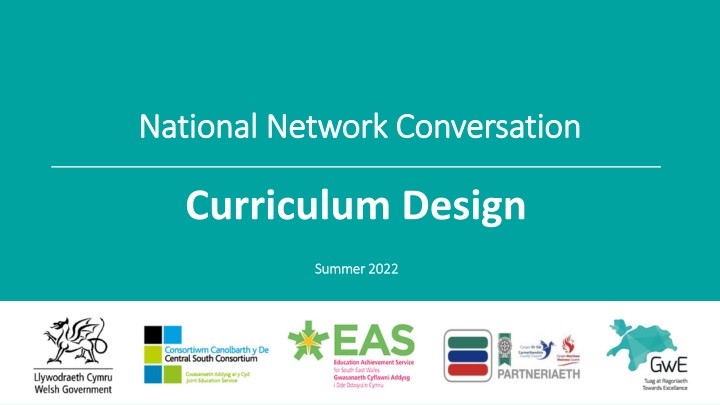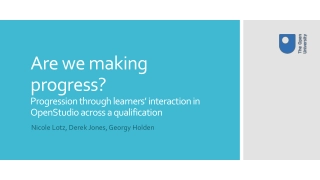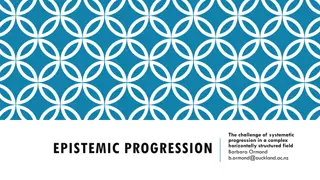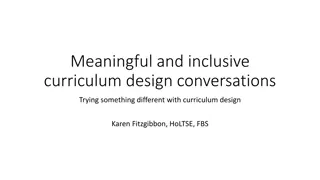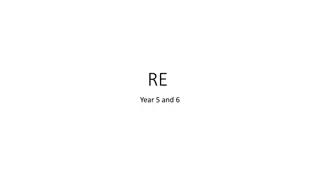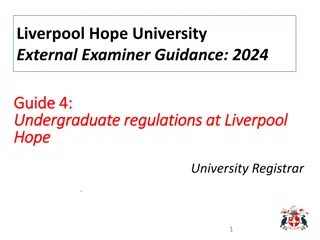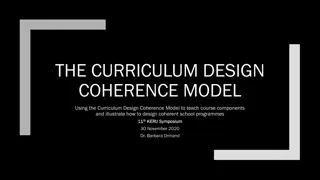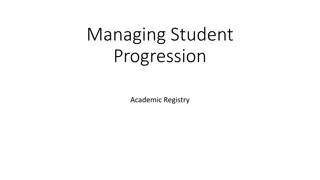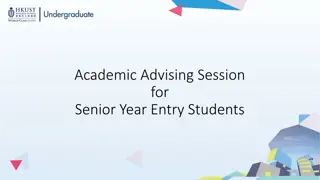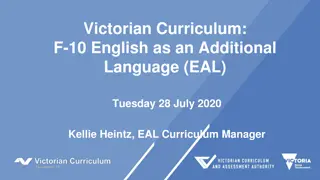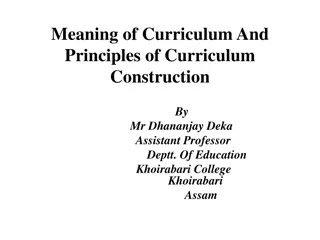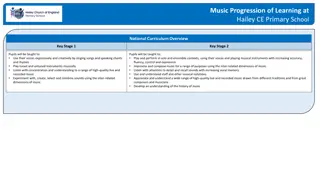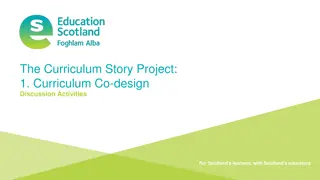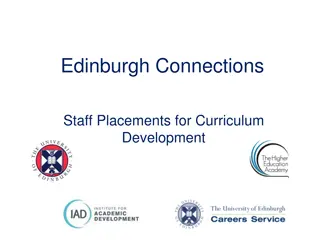Enhancing Curriculum Design for Progression in Learning
This conversation aims to explore effective curriculum design approaches that promote learner progression and success while addressing barriers. Insights shared will influence future projects and initiatives, driving meaningful development towards educational objectives. Key considerations include sequencing teaching experiences, assessing learner understanding, and fostering coherent progression. Emphasis is placed on supporting learners in achieving the four purposes of education through well-designed curriculum opportunities and assessments.
Download Presentation

Please find below an Image/Link to download the presentation.
The content on the website is provided AS IS for your information and personal use only. It may not be sold, licensed, or shared on other websites without obtaining consent from the author.If you encounter any issues during the download, it is possible that the publisher has removed the file from their server.
You are allowed to download the files provided on this website for personal or commercial use, subject to the condition that they are used lawfully. All files are the property of their respective owners.
The content on the website is provided AS IS for your information and personal use only. It may not be sold, licensed, or shared on other websites without obtaining consent from the author.
E N D
Presentation Transcript
National Network Conversation National Network Conversation Curriculum Design Summer 2022 Summer 2022
National Network: Curriculum Design Introduction Introduction This conversation is an opportunity to discuss what s working well, what the barriers are to developing curriculum design approaches which recognise progression in your curriculum, and importantly, what has contributed to success and how barriers have been or may be overcome. The outcomes and conclusions of this conversation will be fed directly back to Welsh Government and regional consortia and partnerships and we will work with them to develop approaches and solutions. They will also help to shape the Camau i r Dyfodol and Assessing for the Future projects.
Learning with Purpose: a template to support curriculum and assessment design Designing high-quality assessment opportunities Planning for Learning with Purpose Using the Principles of Progression Establishing the purpose How will you sequence the teaching and learning experiences to ensure learners make progress? How will the planned knowledge, skills and experiences support ongoing learner progress? How will the curriculum opportunities support coherent progression in learning? How will you know that learners have understood the desired learning purpose? How will learners demonstrate this progress? What criteria will you use to judge this progress? How will learners understand the desired objectives? What is the purpose of this learning? How will this learning support meaningful development towards the four purposes? How have I established the needs of my learners to plan effectively for their progression? From this learning, what knowledge and understandings is are essential for learners to develop breadth and depth in their understanding? What will learners know as a result of this learning? Will this knowledge support their progression towards the four purposes? It is helpful to be mindful of the following questions: How will this learning support development as reflected in the principles of progression? How will learners develop their overall effectiveness? How will learners develop towards disciplinary progression? What are the conceptual triggers for understanding from the statements of what matters? What range of learner outcomes/performance/achie vements will demonstrate progress in learning? What rich tasks will support learners to demonstrate their progress? How will learners reflect on this progress and support their next steps in learning? From this learning, what skills will learners need and develop? What will learners be able to do as a result of this learning? How will these skills enable learners to make progress towards the four purposes? How will this learning be transferred to other contexts? What learning experiences will best support learners to develop the desired understandings? What rich tasks will best allow learners to develop the desired knowledge and skills? How will you build learning activities to realise the identified purpose in learning outlined above?
National Network: Curriculum Design Question 1: Question 1: What principles are underpinning the curriculum design decisions that you have made so far/are making within your school/setting and why have they been your drivers? (35 minutes) : a. What elements of the Curriculum for Wales framework have you used to get your started and why did you start there? E.g. the four purposes, the principles of progression, the pedagogical principles etc. b. What guidance and documentation has guided your decisions and why has it been useful? E.g. Successful futures, OECD reports, any journals, articles, international curriculum experts? c. What part have stakeholders played in supporting these principles to underpin your school/setting curriculum design? E.g. learners, parents, your community, governors, improvement services etc?
National Network: Curriculum Design Break Break (10 minutes)
National Network: Curriculum Design Video: Video: Cluster Working Cluster Working Pembroke Dock Community School building curriculum with our cluster
National Network: Curriculum Design Question 2: Question 2: How has collaboration within and across schools (e.g. cluster, established networks, newly developed relationships) helping to shape your curriculum design? Why choose to work in this way? How have you overcome any challenges? (20 minutes)
National Network: Curriculum Design Question 3: Question 3: What are your planned next steps in your curriculum design journey and why? What do you intend to be different this time next year? How will you realise that ambition? What support will you need and from whom? (20 minutes)
National Network: Curriculum Design Further resources Further resources Having taken part in this national network conversation, consider reflecting on: What have you learned about how people are thinking about curriculum and assessment design that could help with things you are currently working on? Who, in your setting, could you involve in discussions about this? Further resources Podcast: Rethinking Education: Jay McTighe on how to 'backward design' educational nirvana on Apple Podcasts Blog: 5 Key Elements for Successful Curriculum Design (eduplanet21.com) What key messages are there in the further resources (video, article, paper for reference) that are helpful to develop: The things you are currently working on in your setting. Your own understanding and way of thinking about progression and assessment. The key ideas to take away from the national network conversation. Paper: Improving Schools in Wales - An OECD Perspective
National Network: Curriculum Design Keep up to date on upcoming conversations and sign up Keep up to date on upcoming conversations and sign up to future events on to future events on Hwb Hwb. .
National Network: Curriculum Design Diolch Diolch yn Thank you Thank you yn fawr fawr
